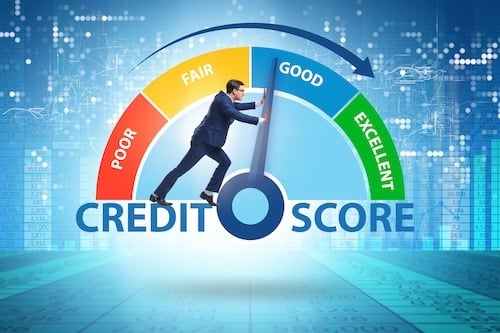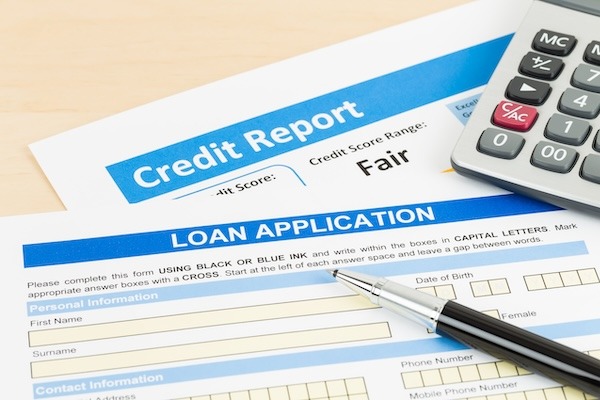Why Budgeting Isn't Working For You (And What To Do Instead)
Ever felt like your budget is a straitjacket rather than a helpful tool? You're not alone. A staggering 80% of people abandon their budgets within...
Whether you're covering unexpected expenses, making a big purchase, or just need extra cash, our personal loans offer simple, flexible funding tailored to your needs.
Simplify your finances with a loan that combines multiple payments into one. Our consolidation loans help reduce stress and keep your budget on track.
Upgrade your living space with financing designed for renovations, repairs, or remodeling. Our home improvement loans help you enhance your home’s comfort, value, and functionality—on your terms.
Explore expert insights, financial tips, and strategic guidance from the Symple Lending team. Our insights and resource articles are your go-to source for empowering content that helps you make informed decisions on your journey to financial freedom.
Stay up-to-date with the latest press releases, media features, and major announcements from Symple Lending. This section showcases how we're making headlines and driving innovation in the lending industry.
8 min read
 Breanne Neely
:
Updated on February 12, 2026
Breanne Neely
:
Updated on February 12, 2026

Table of Contents
Summary: Securing a personal loan with less-than-perfect credit is achievable by understanding how credit scores, income, employment stability, and debt-to-income ratios affect approval and terms. Strengthen your application by checking and improving your credit, reducing existing debts, documenting income, considering collateral or a co-borrower, and using soft-check prequalification to compare offers. Explore varied lenders (online lenders, credit unions, peer-to-peer) and loan types (unsecured, secured, installment, consolidation) while steering clear of predatory fees and “guaranteed approval” claims. Build long-term resilience through budgeting, on-time payments, and responsible borrowing to improve credit and qualify for better rates over time.
Did you know nearly 1 in 3 Americans have a credit score below 670? While traditional wisdom suggests that securing a personal loan with less-than-perfect credit is impossible, the lending landscape has evolved significantly in recent years, offering new hope for borrowers facing credit challenges. Some lenders offer loans starting at a few hundred dollars, making them accessible for immediate financial needs.
Whether you’re looking to consolidate debt, handle unexpected expenses, or fund home improvements, understanding your options for personal loans with less-than-perfect credit is crucial. Today’s lending market offers diverse solutions beyond traditional banks, with alternative lenders and innovative loan products designed specifically for borrowers working to improve their credit standing.
Personal loans offer a way to borrow money for many purposes, from combining debts to handling emergencies or making home improvements. These loans don’t require collateral, making them accessible but potentially harder to get with less-than-perfect credit. Personal loans typically do not require collateral, making them an accessible option for many borrowers.
If your credit score falls below 670, you might face roadblocks when applying for loans. Lenders often charge higher interest rates or add extra fees for borrowers with lower scores. Most lenders look for credit scores of at least 580-669 to approve a loan application. Some lenders offer a soft credit check to assess personalized rates without impacting the borrower's credit score.

Your credit score plays a big part in determining your loan terms. Better scores typically lead to lower interest rates and fewer fees. For example, someone with a 700+ score might get rates several percentage points lower than someone with a 600 score. The annual percentage rate (APR) can significantly affect the monthly payments and total repayment amounts.
It's also important to demonstrate sufficient income to manage monthly expenses effectively.
Understanding estimated monthly loan payments is crucial to compare different loan options. This helps you make informed budgeting decisions and choose the best loan for your financial situation.
Actual loan terms depend on factors such as the applicant's state of residence and ability to meet certain credit standards.
Before applying for a personal loan, checking and improving your credit scores is crucial. A higher credit score can open doors to more favorable loan terms, such as lower interest rates and higher loan amounts. Start by requesting a free credit report from the three major credit reporting agencies: Equifax, Experian, and TransUnion. Reviewing your credit report allows you to spot any errors or areas needing improvement, such as high credit utilization or late payments.
Improving your credit score involves several key steps. First, make all your payments on time, as timely payments are a significant factor in your credit history. Reducing your overall debt, especially high-interest credit card debt, can also positively impact your credit score. Additionally, avoid applying for new credit unless necessary, as each inquiry can slightly lower your score. By building a responsible credit history, you can qualify for better loan terms, including lower origination fees and more flexible repayment options. Remember, a little effort in improving your credit score can save you money in the long run through lower interest rates and more favorable loan terms.
When reviewing your loan application, lenders look beyond your credit report. Your income level and job stability tell them about your ability to make payments. A steady paycheck and long-term employment can boost your chances of approval, even with a lower credit score. Loan eligibility and specific terms depend significantly on the borrower's credit approval.

Your debt-to-income (DTI) ratio matters too - this is how much of your monthly income goes toward paying debts. Most lenders prefer to see a DTI below 36%, though some may accept up to 50%. If your credit isn’t perfect, offering eligible collateral like a vehicle that meets specific guidelines can help. This security gives lenders more confidence in lending to you and might lead to better loan terms.
Larger loan amounts typically require valid insurance on the collateral.
Demonstrating sufficient income after covering monthly expenses is crucial to meet the lender's credit standards.
Show lenders you can handle payments by providing recent pay stubs, bank statements, and tax returns. Providing detailed financial documents can improve the chances of loan approval. Having multiple income sources can help your case. Lower your current debts before applying - this improves your debt-to-income ratio and can lead to better rates.
Think about using assets as collateral. A secured loan backed by your car or savings account often comes with lower rates than unsecured loans. Plus, lenders may be more willing to work with you despite credit issues when you offer security. Some lenders offer loans with no prepayment penalty, allowing borrowers to make early payments without additional costs.
Consider asking someone with good credit to be your co-borrower. Their strong financial history can make up for your credit challenges and might help you get approved. Just remember, they’ll be equally responsible for borrowing and making loan payments.
Understanding the loan agreement is crucial to ensure stable interest rates and monthly payments throughout the loan term.
Online lenders stand out as good choices for borrowers with credit challenges. Many of these companies build their business around helping people with scores below 670, often providing quick decisions and faster funding times. Some lenders offer emergency loans to cover urgent expenses for individuals with bad credit.
Credit unions might work with you even if banks say no. As member-owned organizations, they often look at your whole financial picture rather than just your credit score. Many credit unions offer lower rates and more reasonable fees compared to traditional banks. Home improvement loans allow homeowners to fund projects without using their property as collateral.
Peer-to-peer lending websites connect you directly with people willing to fund your loan. These platforms sometimes accept applications that traditional lenders might turn down. Each investor can choose to fund a portion of your loan, spreading out the risk and potentially making approval more likely. Unsecured loans, which do not require collateral, can be obtained based on the borrower's creditworthiness.
Some lenders can fund loans within hours of approval, providing quick access to funds.
When considering a personal loan, it’s essential to understand the different types available and their unique features. Unsecured personal loans are a popular choice as they don’t require collateral and can be used for various purposes, such as debt consolidation, home improvement, or covering emergency expenses. These loans are based on your creditworthiness, so having a good credit score can help you secure better terms.
 Secured loans, on the other hand, require collateral, such as a car or savings account. Because these loans are backed by an asset, they often come with lower interest rates and more favorable loan terms. However, it’s important to remember that if you default on a secured loan, you risk losing the collateral.
Secured loans, on the other hand, require collateral, such as a car or savings account. Because these loans are backed by an asset, they often come with lower interest rates and more favorable loan terms. However, it’s important to remember that if you default on a secured loan, you risk losing the collateral.
Installment loans, including auto loans, provide a fixed loan amount with a set repayment schedule, making it easier to budget your monthly payments. Payday loans offer short-term funding but come with high interest rates and should be used cautiously.
Consolidation loans can be a smart option if you’re looking to combine multiple debts into a single loan with a lower interest rate and a more manageable monthly payment. This can simplify your finances and potentially save you money on interest.
When choosing a personal loan, consider factors such as interest rates, loan terms, and origination fees to find the best option for your financial needs. Some lenders may offer more flexible credit standards, making it easier for individuals with bad credit or low credit scores to qualify. By understanding the different types of personal loans and their benefits, you can make an informed decision that aligns with your financial goals.
Take time to check interest rates and fees from several lenders before choosing a loan. Some lenders may charge hidden fees or excessive rates, so read the fine print carefully. Getting quotes from at least three different companies helps you find the best deal for your situation. Origination fees are a critical cost associated with personal loans and can vary by lender.
Watch out for lenders who promise “guaranteed approval” or don’t check credit at all - these could be warning signs of predatory lending. Look up lender ratings on the Better Business Bureau and read customer reviews to spot trustworthy companies. Flat fees vary by state and can range from $25 to $500, depending on local regulations.
Many lenders now offer pre-qualification tools that won’t hurt your credit score. These “soft” credit checks let you see potential rates and loan amounts without affecting your credit report. Use these tools to shop around and find the best loan solution for your needs. Loan offers presented to potential customers are based on their eligibility and assume no active loans with the lender.
Credit-builder loans offer a path to better credit scores through small, managed payments. These loans hold the money you borrow in a savings account while you make monthly payments. Each payment gets reported to credit bureaus, helping build your credit history. Payday loans are available for individuals with bad credit but come with high interest rates and should be used cautiously.
Secured loans let you use assets like your savings account or car as a backup for the loan. By offering this safety net to lenders, you might get a loan with lower rates than with standard personal loans. The catch? You could lose your assets if you miss payments. Loan proceeds cannot be used for business or commercial purposes.
Borrowing from friends or family might work if traditional loans aren’t an option. Set clear terms in writing, including payment schedule and interest (if any). Keep communication open and treat the arrangement like a formal loan to protect your relationships. Loan proceeds cannot be allocated towards postsecondary educational expenses according to regulations.
Good money habits make a real difference in your financial future. Start by creating a monthly budget that tracks your spending and savings. Credit scores are needed to check your reports regularly - you can get free copies yearly from the major credit bureaus. Consolidating multiple high-interest loans into a single, lower-interest payment can help save money.
Making all your payments on time helps rebuild your credit score steadily. Try to keep credit card balances low, ideally using less than 30% of your available credit. Small steps add up over time. Paying off a personal loan early can save on interest charges, so ensure your lender does not impose prepayment penalties.
Remember that credit challenges are temporary. Many people work through similar situations and come out stronger. Focus on what you can control, like paying bills promptly and building an emergency fund. Each positive financial choice brings you closer to better loan options and lower rates. Keep records of your progress to stay motivated as your credit score improves. For example, a $10,000 loan at an APR of 5% over 5 years will have different repayment terms compared to a $5,000 loan at the same rate, illustrating the financial responsibilities tied to personal loans.
Securing a personal loan with less-than-perfect credit may require extra effort, but it’s far from impossible. By understanding your options, from online lenders to credit unions, and taking steps to strengthen your application, you can find funding solutions that work for your situation while building a stronger financial foundation. Not all approved applicants qualify for the most favorable loan terms, which depend on specific criteria such as credit history and income.
Remember that your current credit situation is just a snapshot in time, not a permanent reality. By combining responsible borrowing practices with consistent financial habits, you can gradually improve your creditworthiness while accessing the funds you need today. Focus on progress, not perfection, as you navigate your borrowing journey. Approved applicants qualify for better loan terms by meeting certain standards, such as having a responsible credit history and sufficient income.
Disclaimer: The information provided in this blog post is for educational and informational purposes only and should not be considered as financial, legal, investment, or tax advice. Symple Lending is not responsible for any financial outcomes resulting from following the information or ideas shared in this blog. Every individual's financial situation is unique, and we strongly encourage readers to take their own circumstances into consideration and consult with a qualified financial, legal, tax, and investment advisor before making any financial decisions. Symple Lending does not provide financial, legal, tax, or investment advice.
.jpeg)
Ever felt like your budget is a straitjacket rather than a helpful tool? You're not alone. A staggering 80% of people abandon their budgets within...

Feeling like the words "bad credit" are a locked door when you need financial help? It’s a stressful place to be, but it’s not a dead end. Knowing...

Did you know that 78% of Americans live paycheck to paycheck? That financial tightrope where you're constantly deciding which bill can wait until...

Did you know that a personal loan could either be your credit score's best friend or its worst enemy? It all depends on how you use it. While many...

Did you know that a personal loan could both hurt and help your credit score—sometimes simultaneously? While most borrowers worry about the negative...

When you need a loan but have a challenging credit history, it’s easy to feel like all the doors are closed. The good news is that having poor credit...